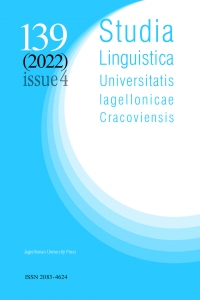Two Approaches to Etymological Research in Turkic Linguistics
Two Approaches to Etymological Research in Turkic Linguistics
Author(s): Marek StachowskiSubject(s): Lexis, Philology
Published by: Wydawnictwo Uniwersytetu Jagiellońskiego
Keywords: linguistics; etymology;
Summary/Abstract: Three years after my etymological dictionary of Turkish (KEWT) appeared in print a review by Marcel Erdal (2022) was published. At first, it seemed to me a fortunate circumstance because I expected a valuable discussion with creative impulses. That was, unfortunately, not the case. The review is aggressive both in spirit and style.1 Its author distorts the quoted content and reduces the entire Turkic etymology to equating modern Turkish words with their Old Turkic coun- terparts, according to the motto: What is absent from Old Turkic does not exist at all. No areal or comparative reflection is presented, no asterisks are used. Being not very polemical in nature, I was at first shocked but not ready to write a response. On reflection, however, I came to a different conclusion: Erdal’s review article is a good opportunity to present two approaches to etymological research coexisting nowadays in Turkic linguistics which is a phenomenon undiscussed in our circles and hardly known in other philologies.
Journal: Studia Linguistica Universitatis Iagellonicae Cracoviensis
- Issue Year: 139/2022
- Issue No: 4
- Page Range: 383-390
- Page Count: 8
- Language: English

